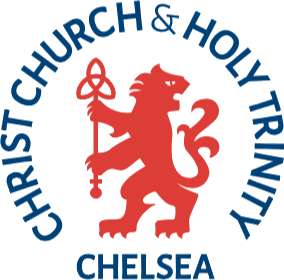Assessment
How do we measure pupils’ progress and attainment?
At Christ Church & Holy Trinity Schools, children are assessed in Reading, Writing & Maths 3x per year. In KS1 & KS2 children are assessed against the learning objectives in the National Curriculum.
Data is then entered onto a set of matrices where individual children’s attainment and progress can be assessed and interventions can be planned for.
School reports, which are produced twice a year, indicate whether a child is attaining at a level that is in line with (or at) the nationally expected standard, below the national standard, or at a level that is beyond the national standard (at greater depth). Parents and carers can see at a glance where strengths lie and where extra work may still be needed.
At the end of the school year, academic reports will also include the standard children have reached across all subjects.
This data will be shared with parents at an individual meeting and targets will be discussed.
Assessing Progress and Attainment in RE
This is both informal and formative – through general observation of children, their involvement in activities, their contribution to discussion, individual books, photographs, records of class discussions/debates (flip charts), group outcomes, class displays, teacher’s evaluations of their planning – and a formal/summative assessment at the end of each topic and the end of each term. These assessment records are passed onto the next teacher, at the end of the academic year. Teachers also hand on specific notes to the next class teacher which can give relevant comments on a child’s approach and response to RE and their ability to take on core values.
Marking RE books is sensitive to the children’s understanding and development. Children regard their RE books as special books and teacher’s feedback marking reflects this in their comments. They ask further questions where appropriate and these are discussed verbally or responded to by the children in green pen. Progress in RE is reported annually to parents in the end of year report
Assessment in Early Years
At the end of the EYFS, staff complete the EYFS profile for each child. Pupils are assessed against the 17 Early Learning Goals,(ELGs) indicating whether they are:
Meeting expected levels of development, exceeding expected levels or, not yet reaching expected levels (‘emerging’)
Children are assessed formally when they enter Reception Class using the ‘Reception Baseline Assessment’ published by the Standards & Testing Agency. Children are also assessed 3x a year by members of the Reception Class team and performance against all aspect of Development Matters are carefully recorded.
Parents receive a report during the Spring Term which provides information about their child’s current level in Reading, Writing and Maths. This is then added to at the end of the school year, when judgements will also be made against the remaining ELGs.
At the end of the year, children will receive a letter from the class teachers highlighting ways in which they have been an ‘Excellent Learner’ which focuses on the Characteristics of Effective Learning.
Judgements are made from observations made by all members of staff in the setting, along with written pieces in their learning journals.
All of these judgements are shared with the Year 1 teacher and the Local Authority.




